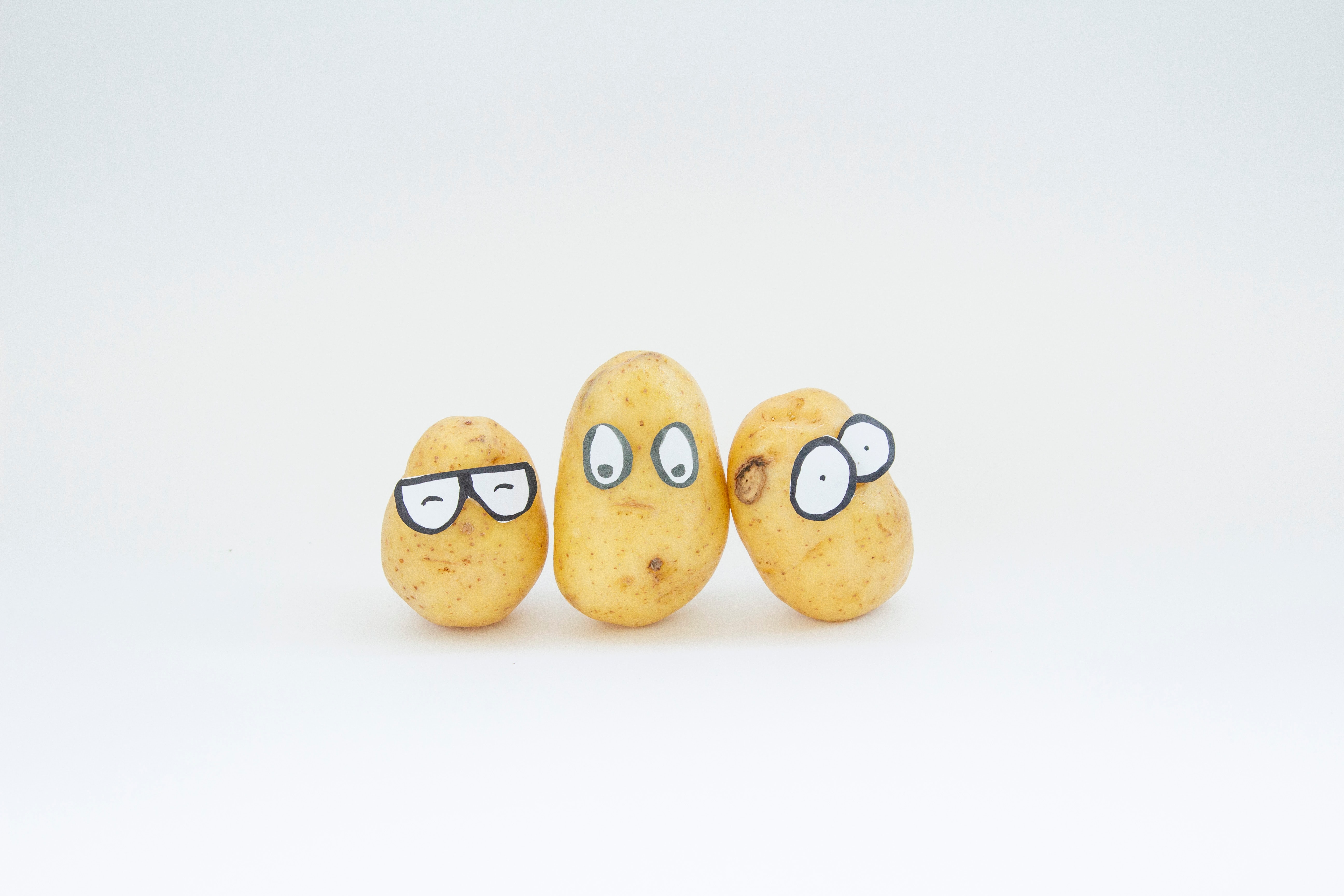Potatoes are a versatile and delicious root vegetable that can be enjoyed in various dishes. They are also a great source of nutrients, including fiber, potassium, and vitamin C. However, potatoes can go bad relatively quickly if they are not stored properly.
There are a few different ways to store potatoes long-term, depending on your needs. For example, you can store them in a cool, dark place like a basement or root cellar.

In this article, we will examine potatoes natural shelf life and provide detailed instructions on the best methods for storing potatoes long term. We will also outline some of the equipment and tools you will need to keep your potatoes edible and delicious for years to come. If you have ever wondered how you can extend the life of this nutritious snack, read on.
How Long Do Potatoes Last?
Potatoes are a type of root vegetable that is typically harvested in the fall and then stored for use throughout the winter months. If properly stored, potatoes can last for several months. The key to storing potatoes is to keep them in a cool, dark place with plenty of ventilation. A root cellar or cool basement is typically ideal. Potatoes should not be stored near other fruits and vegetables, as they give off ethylene gas that can cause other produce to ripen too quickly. When stored correctly, potatoes will stay fresh for 2-3 months. However, if they start to sprout or develop soft spots, it’s time to toss them out. With a little care, you can enjoy fresh potatoes all winter long!
Do Potatoes Go Bad?
Yes, potatoes can go bad. Raw potatoes should be firm and have tight skin that is free from large bruises, black spots, or other blemishes. If a potato has become soft or mushy, you should throw it away. Though it is normal for potatoes to smell earthy or nutty, a musty or moldy odor is a hallmark of spoilage.
How Long Do Uncooked Potatoes Last?
If you store potatoes in a cool, dark place, they will last up to two months. If you store them at room temperature, they will last up to two weeks.
Is It OK to Eat Potatoes That Are Sprouting?
Although sprouts may appear unappetizing, recently sprouted potatoes are still safe to consume as long as the sprouts are removed. Simply snapping them off with your fingers is sufficient. You shouldn’t eat the sprouts because they contain solanine, chaconine, and other poisonous glycoalkaloids.
How to Store Potatoes Long Term
There are a few different ways to store potatoes long-term. The best method for you will depend on your needs and how long you need to store the potatoes.
For short-term storage (2-3 months), the best option is to keep them in a cool, dark place with plenty of ventilation. A root cellar or cool basement is typically ideal, yes I know most of us don’t have root cellars. Just be sure to keep them away from other fruits and vegetables, as they give off ethylene gas that can cause other produce to ripen too quickly.
Storing Potatoes in Basements and Root Cellars
Basements and root cellars are ideal locations for storing potatoes long-term. These areas are typically cool (between 45˚F to 50˚F) and dark, which are ideal conditions for storing potatoes. Additionally, they are typically free from pests and have plenty of ventilation, which helps to prevent the potatoes from rotting.
Don’t store potatoes out in the open on the countertop. Keep them in a drawer, in a basket, in a closet, or inside of a paper bag. This will help them last for one to two weeks. The clear plastic bags they sometimes come in are not ideal. Putting them into a paper bag is a better option.
Remember that potatoes are plants, after all. If they are in the sun, they will turn green and eventually rot.
It’s a good practice to transfer your potatoes into a paper bag or a mesh bag. We recommend these Organic Cotton Produce Bags. If you are going to keep them in the plastic bag they come in, make sure their top isn’t tightly sealed and it’s well-perforated.
Should You Store Potatoes In The Fridge?
Uncooked potatoes should be kept cool and dry, however, they should not be refrigerated. When uncooked potatoes are stored in the refrigerator, their sugar content increases, as well as the amount of a chemical called acrylamide produced during baking, frying, or roasting at high temperatures.
Can you freeze potatoes? Yes, with a little prep, potatoes can be preserved in the freezer. Frozen cooked potatoes can be used in many different dishes.
Can you freeze raw potatoes? No, uncooked potatoes do not freeze well. The potato will lose its flavor, color, and texture if it is frozen without being pre-cooked. Blanching the potatoes stops enzyme actions that can cause these losses.
Can you freeze mashed potatoes? Yes, mashed potatoes can be frozen for a later meal. You can either freeze leftover mashed potatoes or cook up a fresh batch specifically to freeze.
How To Prepare Potatoes To Freeze Them
Prepare the Potatoes
- Scrub the potatoes well under clean running water, and then air dry on a clean kitchen towel.
- Fill a large bowl with cold water.
- Peel the potatoes and trim off any blemishes, eyes, and green areas.
To Freeze Diced Potatoes
- Cut the potatoes 1-inch sized pieces, and place them into the bowl of water as you work.
- Bring a large pot of water to a boil over high heat. While the pot is heating up, fill a large bowl with cold water and ice.
- Working in batches, blanch the potatoes by dropping them into the boiling water. Boil each batch for 2 to 5 minutes, or until the interiors are crisp-tender and can be speared with a knife.
- Scoop out the blanched potatoes with a slotted spoon or strainer and drop into the bowl of ice water to stop the cooking process.
- Once the potatoes have cooled, drain, and dry well with a clean kitchen towel.
- Lay the potatoes out on a parchment lined sheet pan and freeze for about an hour until frozen, and then package the pieces up into freezer bags. Remove air from the bag, seal, label, date, and store in the freezer for up to 3 months.
To Freeze Shredded Potatoes
- Shred the potatoes using the large holes of a box grater or food processor. Place the shredded potatoes into the bowl of cold water as you work.
- Bring a large pot of water to a boil over high heat, and fill a bowl with cold ice water.
- Working in batches, add the shredded potatoes to the pot and blanch for about 3 minutes. Scoop out and plunge into the ice water bowl to stop the cooking process.
- Once the potatoes have cooled, drain and spread them out evenly on a kitchen towel. Roll up the towel and squeeze to remove as much moisture as you can.
- Spread the shredded potatoes out on a parchment-lined baking sheet, and flash freeze until frozen, about one hour. Pack the frozen potatoes into freezer bags, squeeze out all the air, seal, label, and store in the freezer for up to 3 months.
Source: Grow A Good Life
Signs That Potatoes Have Gone Bad
If you’re wondering, “have my potatoes gone bad?” Look for mold, black spots, and soft areas. Mold is a good indicator; so are black spots and mushy areas. Avoid eating potatoes that are wrinkled, soft, or shriveled, according to Dr. Benjamin Chapman of North Carolina State University‘s department of food science.
Green potatoes, on the other hand, are a signal that the potatoes have been exposed to too much light and will have a bitter taste and can irritate the digestive system.






